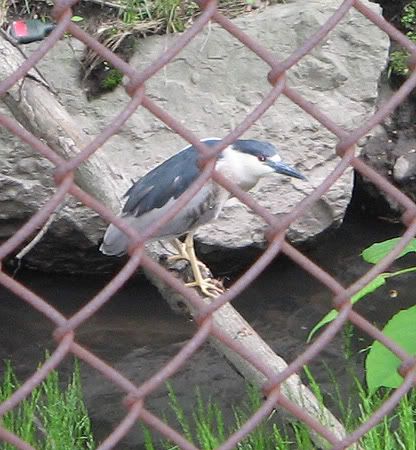365 Urban Species. #143: Black-crowned Night-heron

Urban species #143: Black-crowned night-heron Nycticorax nycticorax
The world's most wide-spread heron species (five continents--even more than the wide-ranging cattle egret) is a handsome, crow-sized bird. Red eyes and a black cap make the adult bird distinctive and somewhat baleful in appearance. Juvenile night-herons are well-camouflaged, and often mistaken for their rarer and more secretive relatives, the bitterns. In shallow urban waters, night-herons feed on fish and aquatic invertebrates, usually between dusk and dawn, but if food is plentiful they will eat in daylight. Sometimes they are seen alone, and sometimes they are in the company of several other herons of their own or other species.
In Boston they are locally common in the Fens, the Muddy River, and on storm outflow areas leading into the Charles. Black-crowned night-herons are migratory, appearing in the northern parts of their range in late April, and flying south again in October. Black-crowned night-herons are a candidate for special status, according to the American Ornithological Union, because their dual habitat requirements--shallow water to feed in and forest to nest in--are potentially threatened by development.